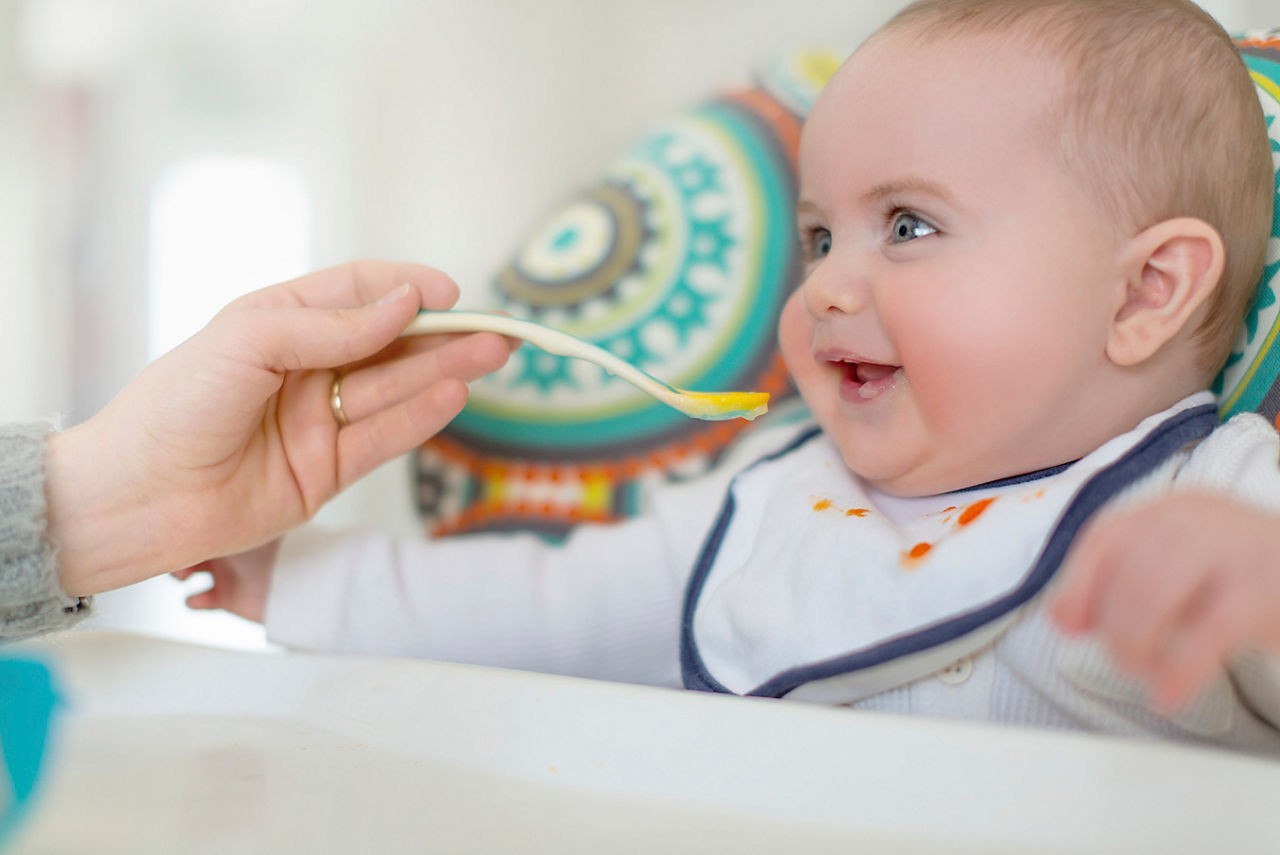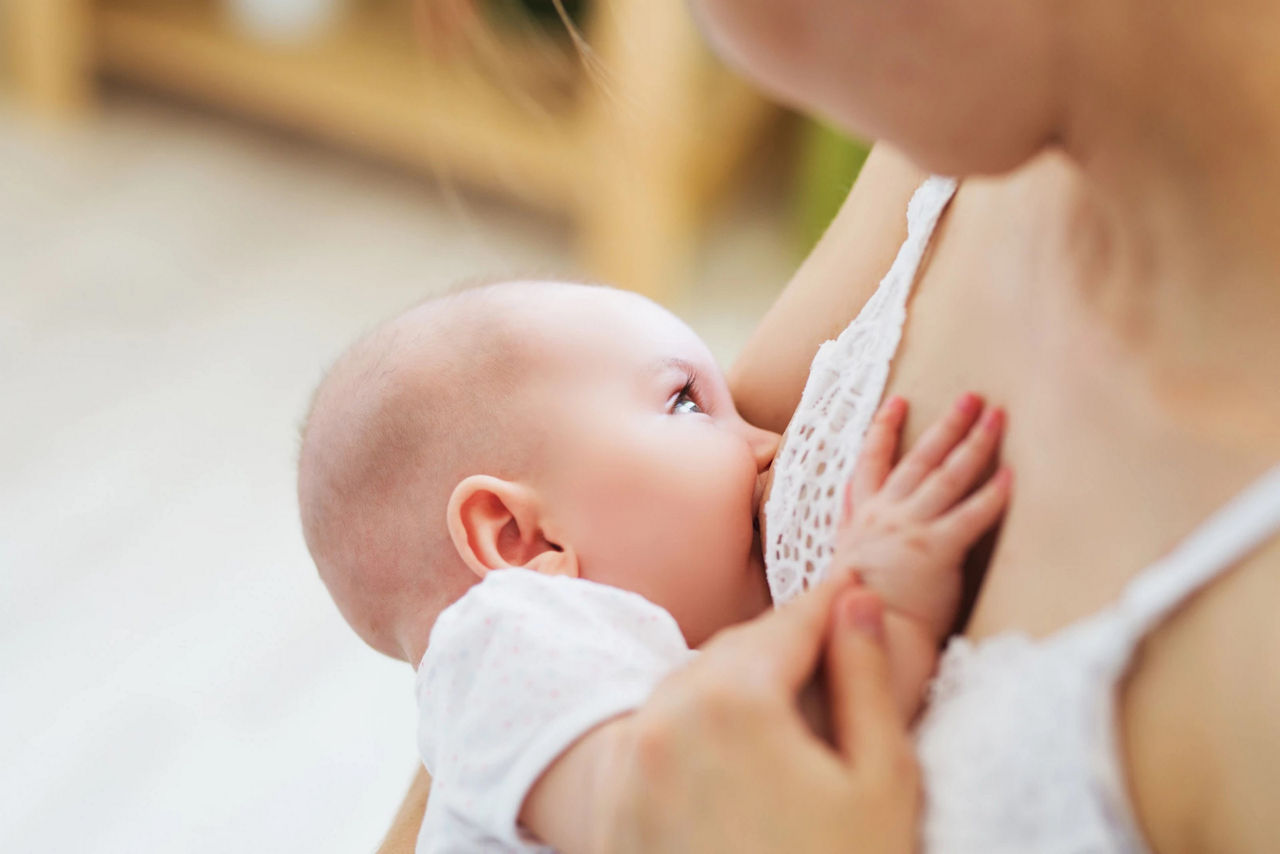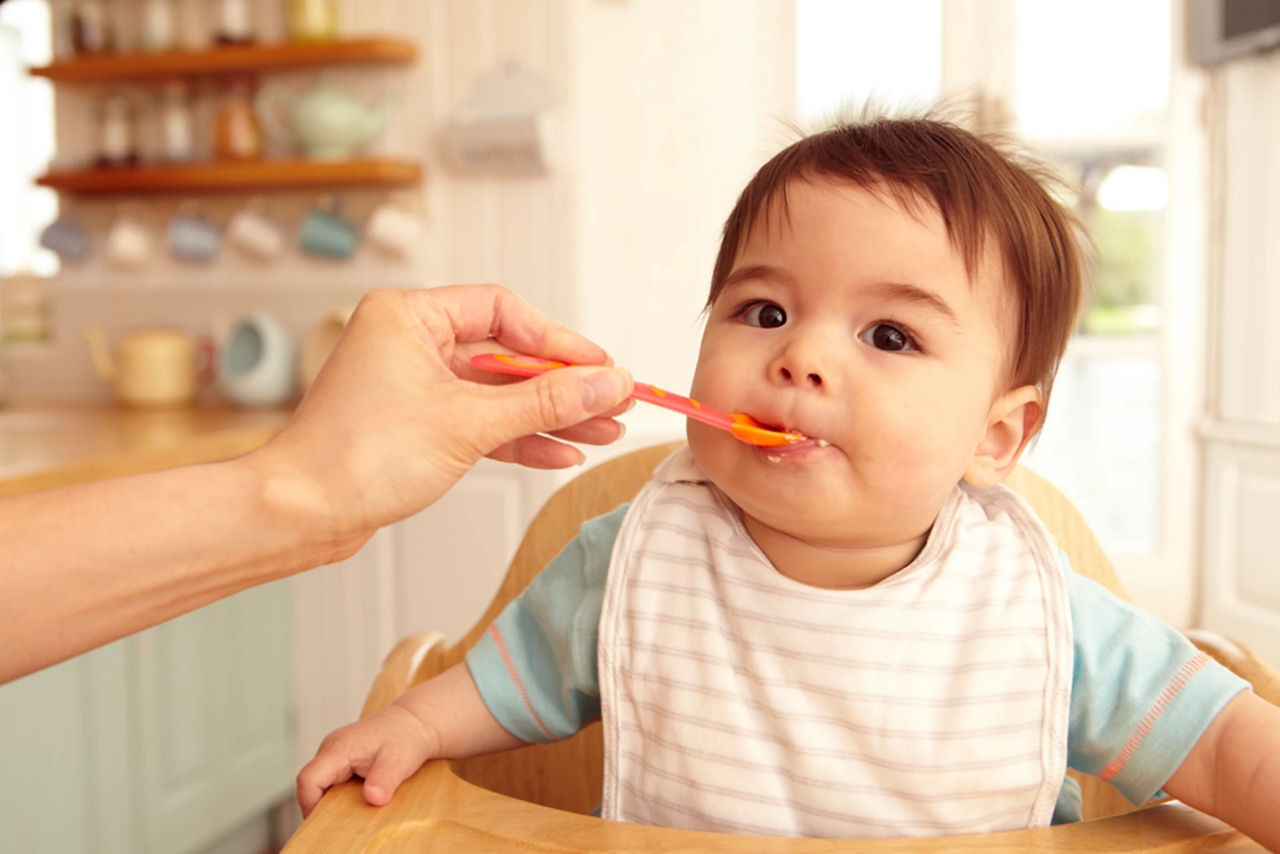Discover how to help your baby’s immune system, including the benefits of breastfeeding and tips for baby immune support.
How to Help Support Your Baby’s Immune System

Breastfed Baby Immunity
Breast milk gives your baby the fuel and building blocks they need to grow and develop, and also provides immune protection for your infant. Breast milk contains important proteins involved in immune function such as antibodies and cytokines, as well as its own ‘friendly bacteria’ which helps your infant’s immune system to mature1.
The NHS recommends that you breastfeed your baby exclusively for six months, and continue breastfeeding alongside introduction of foods for the first two years of life or for even longer if you would like to2. You can read more about the benefits of breastfeeding for mums and their babies here.
Important Nutrients for Baby Immune Support
Some vitamins are essential to support your baby’s immune system, such as vitamin A, which is required by our white blood cells in their response to bacteria. The NHS recommends:
- If you’re breastfeeding your baby under 6 months old, you should give your baby a daily supplement of vitamin D.
- If you’re breastfeeding your baby over 6 months old, you should give your baby daily supplements of vitamins A, C and D.
- If your baby is formula fed, and they have more than 500ml of formula milk a day, you do not need to give supplements to your baby as formula milk is already fortified with vitamins3.

Foods to Support Your Baby’s Immune System
The NHS recommends you start introducing your baby to their first foods at around six months of age4. The type of first foods that you introduce to your baby when they are ready, may have a role in preventing food allergies. For example, research has shown that babies at high risk of peanut allergy who were provided with snacks containing peanuts in early life were less likely to develop peanut allergy5.
If you are worried your baby may have an allergy, please speak to a Healthcare Professional. You can read more on nutrition and baby immune systems here.
Vaccinations for Baby Immune Support
You can also support your baby’s immune system by having the pregnancy vaccinations and immunisations recommended by the NHS – this includes the seasonal influenza vaccination, and a whooping cough vaccination. These pregnancy vaccinations help to protect both you and your baby as the antibodies made by your immune system will also pass across the placenta and through your breast milk to your baby.
Once your baby has arrived, make sure they have the NHS recommended childhood vaccinations to protect them against serious childhood illnesses6.
Establish a Healthy Sleep Routine
In adults, we know that sleep (or lack of it!) can affect your health, including your immune function7. You can find out more on how to establish a good baby sleep routine here.
More on Your Baby’s Immune System
There are other factors before and during birth which can affect your baby’s immune system.
A small percentage of children in developed countries have food allergies (3-6%), and around 1 in 6 children have eczema in the UK8.
Babies born by caesarean section are more likely to develop food allergies and asthma than those born by vaginal delivery9. This may be due to a lower level of exposure to maternal gut bacteria during the birth, leading to changes in how a baby’s immune system matures.
However, only a very small number of food allergy cases can be connected to the birthing method alone. There are lots of factors which have been linked to a reduced risk of allergy in children, including genetics, pet ownership, and having an older sibling1.
Related articles

Need some help?
You can get quick answers to common questions in our FAQs.
Alternatively, if you need help with general pregnancy or baby advice, or maybe on using or ordering our products - our expert team are always on hand to talk about feeding your baby.
Important notice
Breastfeeding is best for babies and provides many benefits. It is important that, in preparation for and during breastfeeding, you eat a varied, balanced diet. Combined breast and bottle feeding in the first weeks of life may reduce the supply of your own breast milk, and reversing the decision not to breastfeed is difficult. The social and financial implications of using an infant formula should be considered. Improper use of an infant formula or inappropriate foods or feeding methods may present a health hazard. If you use an infant formula, you should follow manufacturer’s instructions for use carefully – failure to follow the instructions may make your baby ill. Always consult your doctor, midwife or health visitor for advice about feeding your baby.



